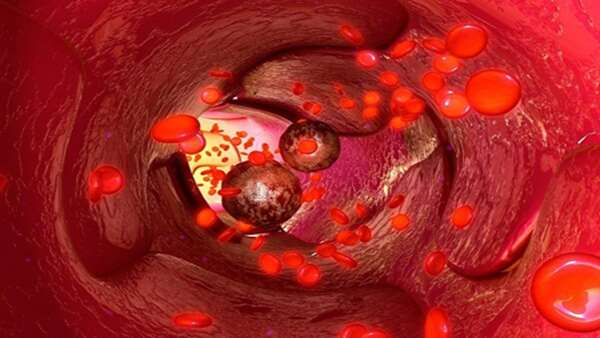A man given a year to live after being diagnosed with an aggressive form of cancer is now disease-free thanks to a UK trial of a personalised drug regime.
Robert Glynn, 51, a welder from Worsley in Greater Manchester, said he “wouldn’t be here” if it were not for the remarkable results of the immunotherapy trial run by the Christie NHS foundation trust in Manchester.
Glynn was diagnosed with intrahepatic bile duct cancer a day before his 49th birthday in June 2020, after experiencing severe pain in his shoulder, which left him unable to sleep.
Also known as biliary tract cancer, this aggressive condition causes the cells lining the bile ducts to multiply and grow more than they should. Bile ducts are small tubes that connect the liver, gallbladder and small bowel (intestine). They release bile into the bowel after eating, helping to digest fat.
By the time of Glynn’s diagnosis, the cancer had spread to his adrenal gland and liver, with tumours too big to operate on. It was classed as stage 4, with a bleak prognosis.
“I asked my consultant to be honest and tell me how long I’d got if I carried on as I was, and she said 12 months,” he said.
About 1,000 people in the UK are diagnosed with bile duct cancer every year. For those, like Glynn, whose cancer has spread to other organs, only one in 50 people (2%) lived for at least five years after their diagnosis, according to US studies cited by Liver Cancer UK.
Glynn was referred to the Christie, where he was deemed a good candidate to participate in a clinical trial of an immunotherapy drug that is already approved for use in lung, kidney and oesophageal cancer. Immunotherapy works by helping the immune system recognise and attack cancer cells.
Pre-treatment analysis of Glynn’s tumour showed it had a high mutation burden (large numbers of genetic mutations in the cells), suggesting he could have a good response to treatment.
The treatment, which is given by a drip and helps a person’s own immune system fight cancer, was combined with standard chemotherapy.
The drug cannot be named due to the experimental nature of this trial for bile duct cancer.
The tumour in his liver shrank from 12cm to 2.6cm, while his adrenal gland tumour shrank from 7cm to 4.1cm. This meant Glynn was able to undergo surgery in April to remove his tumours.
Surgeons found only dead tissue, which meant the treatment had killed off all the cancer cells. “They didn’t find any active cancer cells at all. They tested the tumours twice because they couldn’t quite believe it,” said Glynn.
“One of the nurses at the Christie said it was a miracle. I don’t like that word – I’m just an ordinary bloke – but it’s definitely remarkable. Without the trial I wouldn’t be here,” he added.
Since his operation in April this year, Glynn has not needed any more treatment and his three-monthly scans show he is clear of cancer.
Further studies are now being carried out with more patients, with the hope of changing the treatment of biliary tract cancer.
After learning of the link between obesity and cancer, Glynn also changed his diet completely, losing five stone by cutting out all processed foods, refined sugar, dairy and milk. “It was the kick up the arse I needed to change my life,” he said.
Prof Juan Valle, a consultant oncologist at the Christie and a world-leading expert in biliary tract cancer, said: “Robert has done very well on this combination due to his tumour having a high mutation burden, or a high number of genetic mutations.
“Most patients with this diagnosis do not have as many mutations in their cancer cells so the treatment won’t be as effective, but it does highlight the importance of personalised medicine.
“The results of this research and another larger study are keenly anticipated by colleagues worldwide as it could lead to a change in how we treat patients like Robert in the future.”




ارسال به دوستان